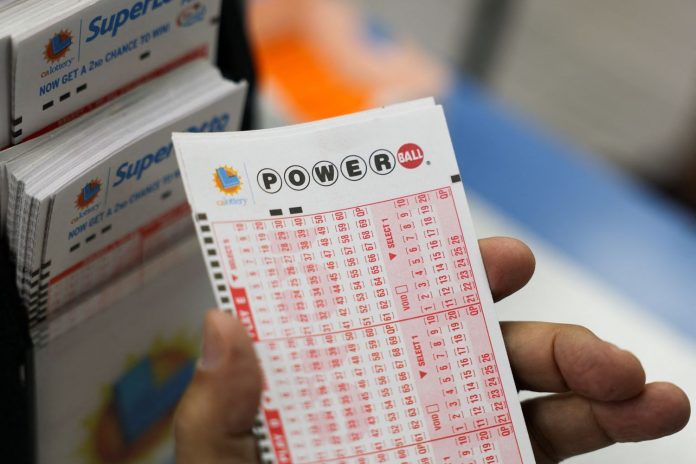Should You Play the Powerball? Let’s Talk Lottery and Money Savvy
The excitement is buzzing. With the Powerball jackpot skyrocketing to an eye-watering $1.8 billion, people everywhere are dreaming about what they could do with all that cash. It’s the second-largest jackpot in history, and the drawing is just around the corner—this Saturday, to be exact. But before you grab your wallet to buy a ticket, let’s pause for a moment. Are you aware of what happens when you use your credit card to make that purchase?
What’s the Deal with Credit Cards and Lottery Tickets?
You might think, “Why not use my credit card? It’s quick and easy.” Well, here’s the catch: credit card companies treat lottery ticket purchases like cash advances. That’s right! If you go ahead and use your credit card, you are likely to face some harsh financial penalties.
When you grab that Powerball ticket, you aren’t just spending $2; you might be racking up fees and immediate interest on that cash advance. Cash advances usually come with fees that can range from 3% to 5% of the purchase amount or a flat fee of $5 to $10. Imagine paying more in fees than the actual cost of your ticket! Yikes.
Additionally, cash advances accrue interest right away. Unlike regular credit purchases, which often come with a grace period where you can pay off your balance without generating interest, cash advances skip right to the bad part—putting more stress on your wallet.
The Big Picture: Spending on Lotteries in America
Despite the odds being against you (1 in 292 million, to be exact), Americans are pouring money into lotteries like it’s going out of style. Last year alone, people spent a staggering $113.3 billion on state-run lotteries, according to the North American Association of State and Provincial Lotteries.
But why is this the case? Interestingly, people with lower incomes tend to spend more on lottery tickets. A study from Wharton economist Benjamin Lockwood revealed that households making under $50,000 spend about 30% more on lottery tickets than those who earn over $100,000. This raises questions about financial literacy, self-control, and the allure of “easy money.”
Lockwood pointed out that many Americans aren’t always the rational decision-makers we think they are. They may act on impulse or lack a solid understanding of the odds. If everyone could match the financial savvy of their most knowledgeable peers, Lockwood suggests, lottery spending could drop by a jaw-dropping 43%.
My Thoughts on the Lottery Craze
So, what’s my take on this lottery frenzy? I get the allure, trust me. I’ve had my fair share of daydreams about winning big. Who hasn’t imagined what they’d do with that kind of money? However, it’s vital to recognize the emotional and psychological factors tied to such decisions. Lottery games can create a feeling of hope and excitement, but they can also lead to financial regret.
Think about the last time you bought a lottery ticket. For me, it was during my lunch break, just for fun. Honestly, the thrill of dreaming up plans for my imaginary winnings was almost more enjoyable than the ticket itself. But did I really expect to win? Nope. It felt like a fun, little escape from reality that didn’t lead to any long-term decisions or regrets.
Understanding What You’re Up Against
As you prepare to purchase that Powerball ticket, it’s useful to consider a few key factors:
- Understand the Odds: With odds of 1 in 292 million, simply playing frequently doesn’t significantly boost your chances. The reality is that many people engage in lottery play without a fundamental grasp of these statistics.
- Financial Literacy Matters: Low financial literacy often leads people into tempting but poor choices. If you’re aware of the risks and understand money management better, you might find ways to invest that same $2 elsewhere—perhaps toward a savings plan or retirement account.
- Self-Control Can Save You: Recognize temptations and resist impulsive decisions. It’s easy to get swept up in the excitement, but taking a step back can be beneficial.
- Think Twice About Credit: Always consider how your payment method impacts your finances. Is it really worth it to potentially incur fees and interest right from the start?
Navigating the Bottom Line
As the Saturday drawing approaches, excitement will undoubtedly build, and many will rush to try their luck. Yet, if you do choose to take part, remember these crucial points:
- Skip the Credit Card: Save yourself the hassle of cash advance fees and interest.
- Gamble Responsibly: Only spend what you can afford to lose. The thrill should come from the fun of dreaming, not from risking your wallet.
- Be Wary of Winnings: Even if you do win, financial literacy is key to making the most of your newfound wealth. The journey doesn’t end with the ticket!
Final Thoughts
In the end, engaging with the lottery can be fun, but it should always come with a hefty side of caution. You might dream big, but understanding your financial situation and making wise choices can take you even further in life. Whether you decide to buy that Powerball ticket or not, remember that real wealth lies in making informed decisions—today and tomorrow.
So, as you consider your options, reflect on what really matters. Is that $2 ticket worth the potential financial implications? In my opinion, the best lottery ticket we can purchase is the one that leads to smarter financial habits. And that’s a win-win!
With the lottery creating waves of excitement and serious conversations about money management, it’s an important time to delve deep into the economic and psychological impacts of gambling behaviors. So share your thoughts below—will you be playing this week?

